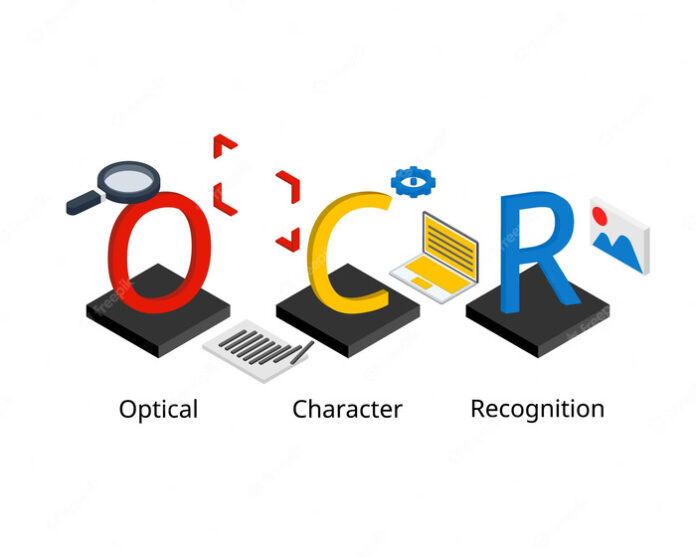Optical character recognition or OCR technology allows the conversion of handwritten or printed text into digital form. This digital text can then be processed and stored electronically. OCR technology is one of the most common systems used for building efficient processes in several industries today. When it comes to the healthcare industry OCR here also has widespread applications that allow better administration and patient care for hospitals.
From banking to government services OCR technology is changing administrative tasks as we have known them for years. Administrative and management-related tasks usually involve a lot of document processing. Most of these documents are hard copies i.e., printed or handwritten on paper. This means that the person or team in charge of document management must read through all these papers manually. In addition, many times industries specifically require jobs for data entry or text entry processes. For individuals, this can be arduous and for corporations, this can be expensive. OCR technology offers a simple solution to solving these problems.
How OCR Technology Can Help Build Better Hospitals
Healthcare is one of those industries that probably wouldn’t ever die. The industry has a lot of constant growth. Hospitals make up a good chunk of the revenue generated by the healthcare industry. A report by Statista finds the estimated revenue generated by hospitals in 2023 to be about USD 4.08 trillion. Additionally, the hospital industry will grow even more in the future. This can be attributed to a growing trend toward poor lifestyle choices and other factors. Collectively all these mean that the industry is inviting a lot of traffic and requires a lot of administrative processing.
When it comes to administration, hospitals involve dealing with a lot of paperwork. This paperwork ranges from patient and employee document information to prescription management. Such processes make OCR technology of great importance for hospitals.
Overall OCR technology has a lot to offer to hospitals. Let’s have a closer look at some of the ways that OCR services can help hospitals build more efficient systems to offer ideal healthcare services.
Improved Security Measures
Security is one of the most crucial factors for hospitals. Any kind of security mishap such as an unsafe person entering the premises, or a data breach can have severe consequences for the hospital as well as the patients admitted. OCR technology offers security services to hospitals in various ways.
Barring unsafe people from entering the premises
In the past, we have incidences of attacks such as shootings at hospitals. To avoid incidents like these, entry gates at hospitals can have OCR technology set up. Such OCR technology will then scan the document to store the information and screen against a database of unsafe individuals. This limits the likelihood of an unsafe person entering the hospital. The staff can manually attest the person and only then permit them to enter.
Protecting patient data
Data breaches are a very common incident at hospitals. This is due to the immense value that the medical records of patients hold. Research conducted by Experian finds medical data to be one of the most desirable documents for criminals. The value of a social security number is $1 and the same for a credit card is $110. Yet, at the same time, a medical record can go up to $1000 on the dark web as some of the live news events have shown on TV. OCR technology scans each individual document and stores it online. While hard copy data can be stolen easily, online encrypted data, thanks to the OCR process, can be protected avoiding data breaches. This makes OCR technology crucial for all services dealing with patient data.
Building Efficiency While Reducing Errors Through The OCR Process
For hospitals, it is very important to process all sorts of patient information correctly. With a massive influx of patients, fast processing becomes another crucial requirement.
OCR technology offers a simple solution to automating hospital management processing. For example, for all new patients entering the hospital, setting up OCR solutions can reduce the time required for registering a new patient. Similarly, implementation of the same process during discharge can also speed up that process. While speed is most certainly a crucial factor, OCR technology at these sites offers great accuracy.
Additionally, manual review of documents can be full of errors. OCR technology solves this problem by offering an accuracy of up to 98 to 99% during its scanning processes.
Also Read- The New Era of Healthcare Technology to Bolster the Patient Experience
OCR Services To Avoid Budget Cuts
Hospitals are expensive businesses to run, even for governments. Medical equipment, salaries, and other patient management products are costly, and in the current economy, many hospitals are cutting down on their budgets.
A budget cut means cutting down on products and systems that help patients. While this helps the hospitals run, it can simultaneously be detrimental to certain patients.
OCR technology helps automate processes. This allows hospitals to do the same tasks with a minimal number of employees. For example, for the registration of patients, only one person needs to collect patient IDs and scan them. This employee puts the ID against the OCR scanner app, and the data is recorded. This reduces the need for additional employees hired for the data entry process. The same applies to many other processes as well.
Summing Up
OCR technology is a leading automation technology showing fast growth and rapid adoption by hospitals. Through OCR, hospitals can build systems for the fast processing of data without compromising accuracy in any way. These are just some of the ways that OCR technology can help hospitals and the total applications are never-ending. While it may seem like a difficult task, OCR can be implemented with ease by simply integrating it with the current management systems. In the long run, this technology will help hospitals build robust systems for healthcare.















